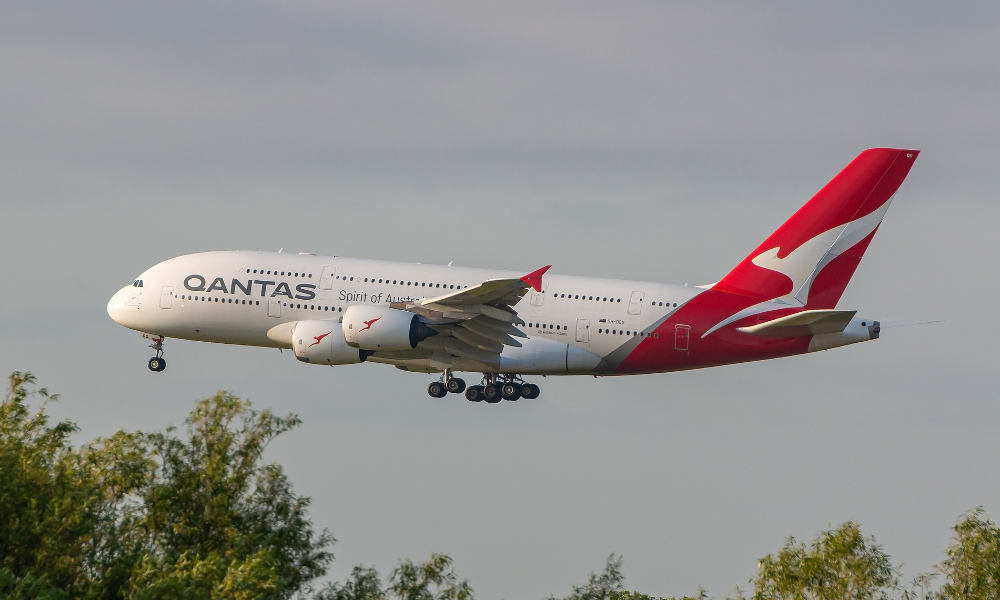
Company 'working very hard' to employ women in highly paid roles, such as pilots and engineers, in bid to address pay gap, says CPO Catherine Walsh

More than 50 Qantas and Jetstar flights are being operated by all-women flight crews this week in the lead-up to International Women's Day on March 8.
The scheme sees 250 female pilots, cabin crew, engineers, airport and operations team members planning, dispatching, and operating flights across Qantas, QantasLink, and Jetstar.
It will cover over 20 routes in Australia, New Zealand, and Asia, according to Qantas, which also owns Jetstar.
Captain Lizzie Archibald, Jetstar's Senior Manager of Flying Operations, said the initiative is an opportunity to showcase different career paths in aviation to young girls and women.
"From the flight deck and cabin to the operations centre, engineering, ground staff, and corporate teams, this week is an opportunity to celebrate the invaluable contributions of women to the world of aviation every day," Archibald said in a statement.
The initiative comes as Catherine Walsh, Chief People Officer at Qantas Group, recently said they are "working very hard" to employ women in highly paid roles, such as pilots and engineers, in a bid to address their pay gap.
Qantas reported a 32.4% median pay gap in 2023-24, according to data released this week by the Workplace Gender Equality Agency.
Walsh attributed the gap to the "significant under-representation of women in highly paid roles like pilots and engineers across airlines globally."
In Qantas Group, only 7.5% of its pilots are women, while just 4.3% are engineers, according to Australian Aviation.
"We are working hard to encourage more women into pilot and engineering roles, particularly through our two academies, but the years of training required for these roles means improving the gender balance of these workgroups will take time," the CPO said as quoted by the Australian Aviation.
Qantas said it is implementing various measures to improve female representation in its workplaces. These are:
Doubling the number of scholarships at the Qantas Group Pilot Academy to 20 for female and First Nations students
Attracting more women into aviation careers through school outreach programs and work experience opportunities
Supporting and educating its workforce to achieve gender equality through the employee-led Altitude Network.
"While progress is being made, change isn’t going to happen overnight. It starts in our schools. We’re expanding our school outreach to promote aviation as a career to encourage girls to dream big when it comes to their careers and follow their interests in STEM," Walsh said.
"Our hope is that young girls will see these incredible women thriving in a technical career to give them the confidence to explore a role that will see them in a hangar, in the flight deck, or running this airline in the future."
Gender composition in the aviation industry remains "very segregated" across the world, according to the International Air Transport Association (IATA).
"For example, cabin crew employment is heavily female-dominated, while flight deck crew (including pilots) is largely male-dominated," the IATA said in a report.
However, it noted that the number of female pilots has been slowly rising over the past few years.
Citing 2021 data from the International Civil Aviation Organisation, the IATA report highlighted that women comprised 4.7% of all pilots globally. The Asia-Pacific region leads when it comes to employment patterns for female pilots, where 6.2% of the total workforce is female.